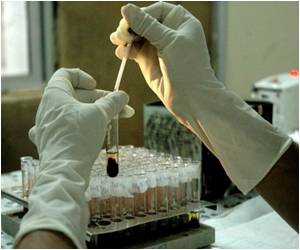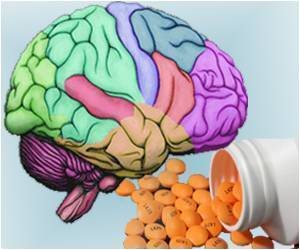Researchers from NTU Singapore, have developed an antibody which boosts the survival chances for patients suffering from influenza and pneumonia.

The patent-pending antibody has generated much interest globally. Two biotech multi-national corporations, Abcam based in the United Kingdom and Adipogen International based in the United States, have won the rights to license the antibody. The two multinational companies will produce the antibody for sale to global organisations doing research in vaccine and drug development.
The breakthrough finding was published in the latest issue of the prestigious international peer-reviewed journal Cell Reports.
Influenza epidemics, such as the deadly 1918 Spanish Flu which killed over 50 million people or the severe acute respiratory syndrome (SARS) outbreak in 2002, are of big concern to governments and the general populace worldwide.
The World Health Organisation estimated that influenza results in about 3 to 5 million cases of severe illness worldwide each year, with about 250,000 to 500,000 deaths annually.
Pneumonia is the leading cause of death in children worldwide accounting for 15% of all deaths for children under 5 years old, and is among the top 10 leading causes of death in the United States.
Advertisement
"While it will take up to eight years to develop the antibody into a useable treatment for human patients, we are currently developing a diagnostic kit which should be commercialised in about three years," said Assoc Prof Tan.
Advertisement
How the new antibody works
The new antibody works by blocking ANGPTL4 which was found to be in high concentration in the tissue samples taken from patients suffering from pneumonia.
"When the antibody we developed was given to mice suffering from pneumonia and influenza which had high levels of ANGPTL4, these mice recovered much faster than the other mice which didn’t receive the antibodies," Assoc Prof Tan said.
"We know that ANGPTL4 usually helps to regulate blood vessel leakiness. But this is the first time we have shown that by blocking this protein, we are able to control the natural response of inflammation, which in turn reduces the damage that inflammation does to the lungs."
"The concentration of ANGPTL4 correlates to the amount of inflammation the patient is having," Assoc Prof Tan explained. "With our diagnostic kit, doctors will be able to see if a particular treatment is working for a patient. This is done by observing whether the concentration of ANGPTL4 is decreasing or not."
Assoc Prof Vincent Chow from NUS Yong Loo Lin School of Medicine, a co-author of the paper, said, "This study reveals the potential diagnostic and therapeutic value of targeting ANGPTL4 in pneumonia, and warrants further detailed clinical investigation in pneumonia patients."
What happens during a lung infection
When a patient is suffering from a lung infection such as influenza and SARS, the inflammation process is started as part of the body’s natural defence. Inflammation is beneficial during this stage, as it has been shown to help get rid of the pathogens (harmful bacteria, virus or parasite) causing the infection.
However in many cases, inflammation continues after the harmful pathogen is flushed out of the body. The continued inflammation causes a build-up of fluids in the lungs and also internal bleeding, and the patient will take longer to recover. In severe avian flu and SARS infections, excess inflammation was shown to cause more deaths than the infection.
First author of the paper and NTU researcher Li Liang said they proved that ANGPTL4 caused blood vessels in the lungs to be leakier, which allowed more white blood cells and other antibodies to enter the lungs to combat the infection. By blocking ANGPTL4, the ’leakiness’ of the blood vessels is lessened, thus reducing the inflammation process.
Source-Medindia















